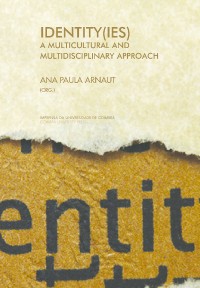Please use this identifier to cite or link to this item:
https://hdl.handle.net/10316.2/90232| DC Field | Value | Language |
|---|---|---|
| dc.contributor.author | Kara, Şenay | |
| dc.date.accessioned | 2017-11-10T22:31:41Z | |
| dc.date.accessioned | 2020-09-05T21:59:30Z | - |
| dc.date.available | 2017-11-10T22:31:41Z | |
| dc.date.available | 2020-09-05T21:59:30Z | - |
| dc.date.issued | 2017 | - |
| dc.identifier.isbn | 978-989-26-1482-3 | |
| dc.identifier.isbn | 978-989-26-1483-0 (PDF) | |
| dc.identifier.uri | https://hdl.handle.net/10316.2/90232 | - |
| dc.description.abstract | Drawing attention to the immense potentialities of cultural, artistic and intellectual engagements and focusing particularly on the transformative and regenerative power of theatre in society, Timberlake Wertenbaker’s play Our Country’s Good (1988) depicts the (hi)story of the noteworthy changes and improvements that a group of underprivileged people experience as they gain access to art. Based on a historical event and set in a colonial environment, the play presents a fictionalized account of the real‑life experiences of a group of convicts who, transported from Britain to Australia in 1787 as members of the first Australian Penal Colony, are given the opportunity to be actively involved in a theatrical performance and who, through that involvement, go –both individually and collectively– through a notable process of gaining awareness and self‑(re)definition. As these convict‑actors/actresses play their roles and experience the identities of socio‑culturally, economically and hierarchically very different characters, they increasingly recognize the constructedness and, consequently, the questionable, challengeable and changeable nature of identities, social roles and positions. Wertenbaker depicts the production of a play within her play and demonstrates the civilizing, rehabilitating, liberating and equalizing power of cultural and artistic practices. This article, while presenting a detailed critical analysis of the dominant themes of class, cultural, racial, ethnic, gender and environmental discrimination and crucial issues like (in)equality, (in)justice, crime and punishment, displacement and (un)belonging as well as the formation and maintenance of identities within these boundaries, pays special attention to the dual function or the uses and abuses of language, discourse, representation, culture and art in relation to all these crucial subjects. There is a detailed discussion of the role of language and narratives not only as tools of constructing but also of deconstructing and invalidating oppressive and unjust social roles and systems, with a special emphasis on the power and benefits of cultural, intellectual and creative practices. | eng |
| dc.language.iso | eng | - |
| dc.publisher | Imprensa da Universidade de Coimbra | por |
| dc.relation.ispartof | http://hdl.handle.net/10316.2/43207 | por |
| dc.rights | open access | - |
| dc.subject | Postcolonial Literature | eng |
| dc.subject | Feminist Theatre | eng |
| dc.subject | Race‑Class‑Gender | eng |
| dc.subject | Displacement | eng |
| dc.subject | Identity Construction | eng |
| dc.subject | Rewriting | eng |
| dc.title | Experiencing the identity(ies) of the other(s), finding that of one’s own on/through the stage in Wertenbaker’s play Our Country’s Good | por |
| dc.type | bookPart | por |
| uc.publication.firstPage | 151 | - |
| uc.publication.lastPage | 188 | - |
| uc.publication.location | Coimbra | por |
| dc.identifier.doi | 10.14195/978-989-26-1483-0_9 | - |
| uc.publication.digCollection | PB | por |
| uc.publication.orderno | 9 | - |
| uc.publication.area | Artes e Humanidades | por |
| uc.publication.bookTitle | Identity(ies) | - |
| uc.publication.manifest | https://dl.uc.pt/json/iiif/10316.2/90232/202288/manifest?manifest=/json/iiif/10316.2/90232/202288/manifest | - |
| uc.publication.thumbnail | https://dl.uc.pt/retrieve/11037081 | - |
| uc.publication.parentItemId | 56851 | - |
| uc.itemId | 68468 | - |
| item.grantfulltext | open | - |
| item.fulltext | With Fulltext | - |
| Appears in Collections: | Identity(ies) | |
Files in This Item:
| File | Description | Size | Format | |
|---|---|---|---|---|
| experiencing_the_identity_ies__of_the_other_s_.pdf | 361.45 kB | Adobe PDF |  |
Items in DSpace are protected by copyright, with all rights reserved, unless otherwise indicated.
